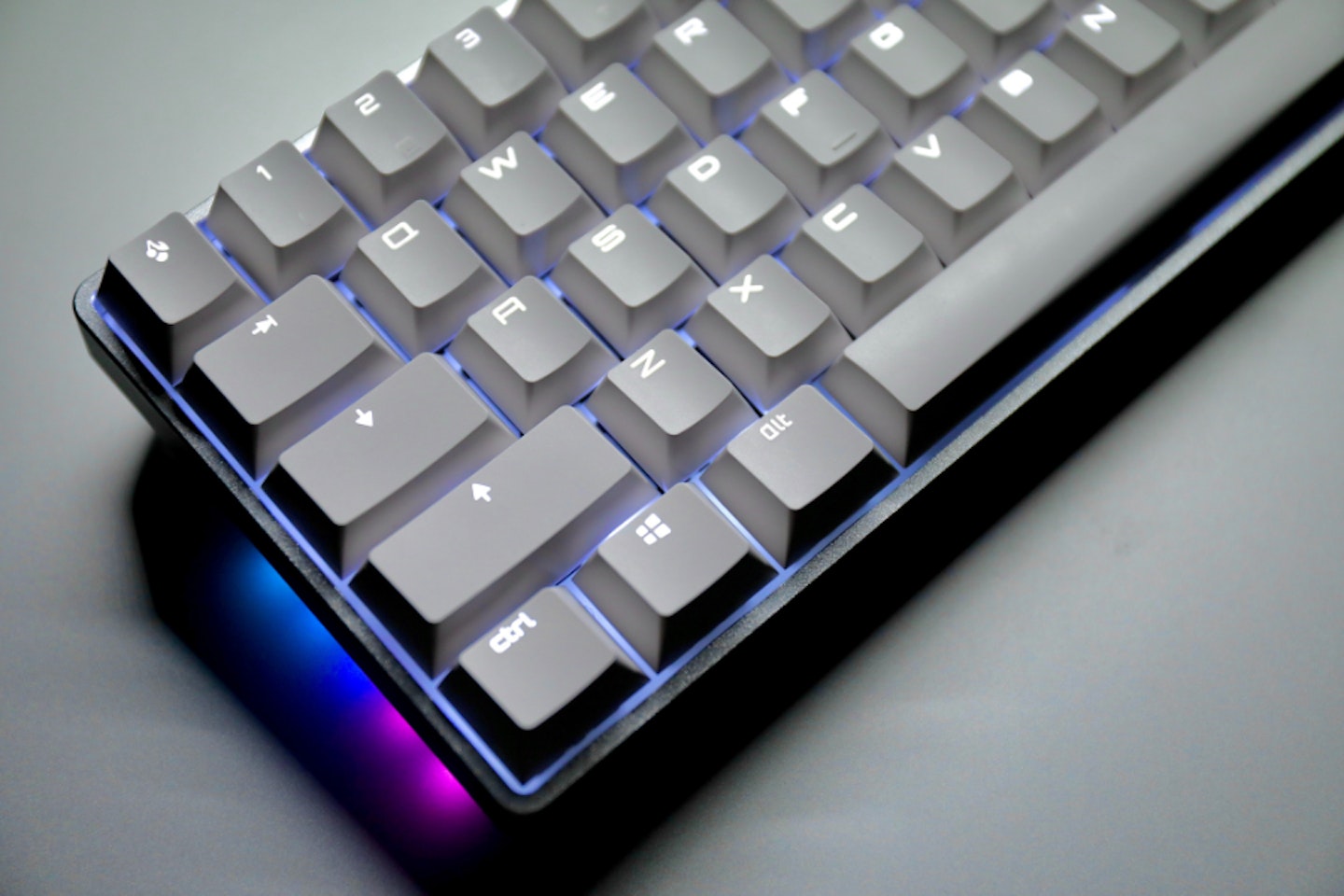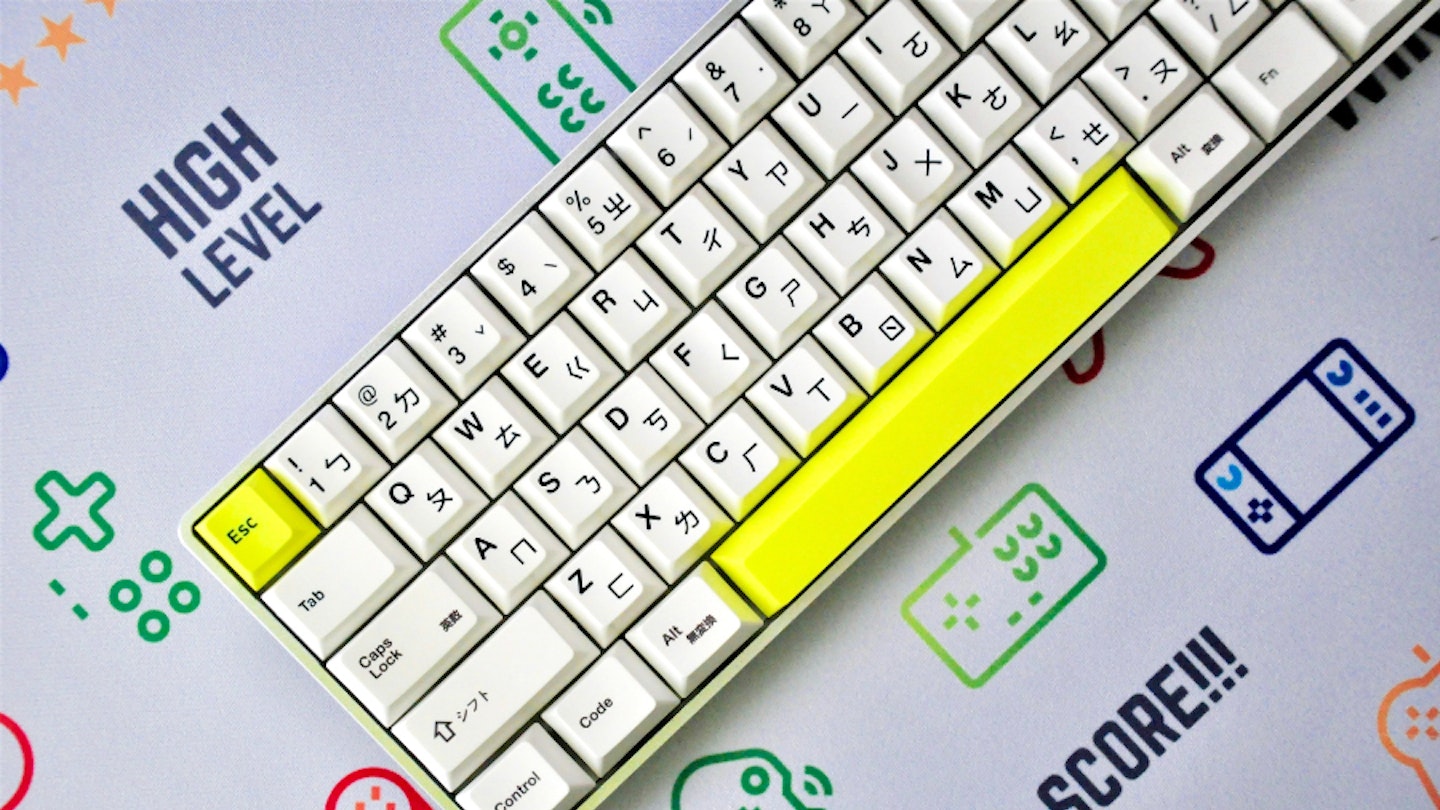Famed with fervent gamers across the globe and sworn by amongst office workers, mechanical keyboards are a popular, powerful and flashy technology that has been a mainstay of the PC peripheral market for decades, making them perhaps the best keyboards on the market - but what are they?
You may be familiar with how a typical membrane keyboard works, these being the keyboards you'll find in offices, schools and homes across the country - but you might not know how exactly they compare to a true mechanical keyboard.
Switches, key actuation, optical technology, RGB lighting - you've probably been bombarded with information about mechanical keyboards in your search for the very best, but very few pages actually tell you what these technologies are and how they impact your day-to-day typing.
In our brief guide, we'll be breaking down the heaps of technological jargon, helping you figure out what keyboard is the very best for you.
What's a mechanical keyboard?
A mechanical keyboard, unlike standard membrane keyboards, uses individual switches under each key of the keyboard itself. This not only makes the keyboard itself more durable and easily repaired, but it also massively increases the accuracy of the keyboard, thanks to a greatly heightened precision when pressing the keys themselves.
What's more, a mechanical keyboard can be customised significantly easier than any other keyboard type, meaning you have the option to swap out and customise keycaps and switches with many options online.
Keyboards such as chiclet keyboards when damaged are often repairable - they might make great cheap keyboards, but they won't last as long nor feel as excellent as a proper mechanical keyboard.

What are mechanical keyboard switches?
On your search for the best mechanical keyboard through the vast unknown corners of the internet, you'll find yourself quickly drowning in technical jargon unbeknownst to those who haven't done ample research. You'll hear talk of switches, colours and clickiness with little to no context of what this truly means - allow us to illuminate this confusing subject.
There are three primary types of switches available on the market right now, but you'll find plenty of variations within these switch types:
Linear: Linear switches are a type of mechanical keyboard switch that is smooth, with no tactile feedback after pressing the key. Linear keyboards are typically quiet and the quickest to actuate (activate with a key press).
Tactile: Tactile switches, unlike linear switches have a bump in the middle of a key press that has a crisp feel to it and a moderate noise that is both satisfying and useful for ensuring that you've actually pressed the key itself.
Clicky: Clicky keyboards are far bumpier than tactile keys and are much louder, giving users that classic mechanical keyboard sound you're probably looking for.
What do switch colours mean?
Generally, you'll find that there are three primary switch colours; red, brown and blue. Red switches indicate that a keyboard is linear, brown switches mean a keyboard is tactile and blue is clicky.
There are variations in this, however - you might find yellow switches, green switches, black switches and clear switches. These are slight variations of mechanical keyboard standards, some offer a louder sound, quicker actuation, others do the opposite - there's plenty of variation with this, not every company uses the colour system, so be warned. With certain keyboards, you can cusomise the layouts and install new keyboard switches to suit your style.
What is RGB lighting?
RGB lighting simply refers to a keyboard's lighting - many mechanical keyboards have backlit keys, which are customisable. This gives the keyboard an unmistakable shimmer and vibrance that looks fantastic.
With many keyboards offering RGB customisation with over 16.8 million colours to choose from and animations to give your keyboard a unique glow, mechanical keyboards have a truly exceptional aesthetic that gamers particularly love.
How much do mechanical keyboards cost?
Mechanical keyboards tend to be on the more expensive side compared to even some pricier ergonomic keyboards. You can find some brilliant budget mechanical keyboards on the market, but these still are at least double the price of a standard membrane keyboard, reaching prices upwards of £200 for exceptional keyboards.
Mechanical keyboards, however, are incredibly durable compared to their budget competition and can be repaired in a flash if any issues persist. A mechanical keyboard is a life-long investment in brilliant hardware.
Ryan Houghton is a tech writer and reviewer for What's The Best, specialising in PCs and gaming. He is a keen PC gamer and an avid reader.
Subscribe to the What’s The Best Newsletter to keep up to date with more of the latest reviews and recommendations from the rest of the What’s The Best team.
